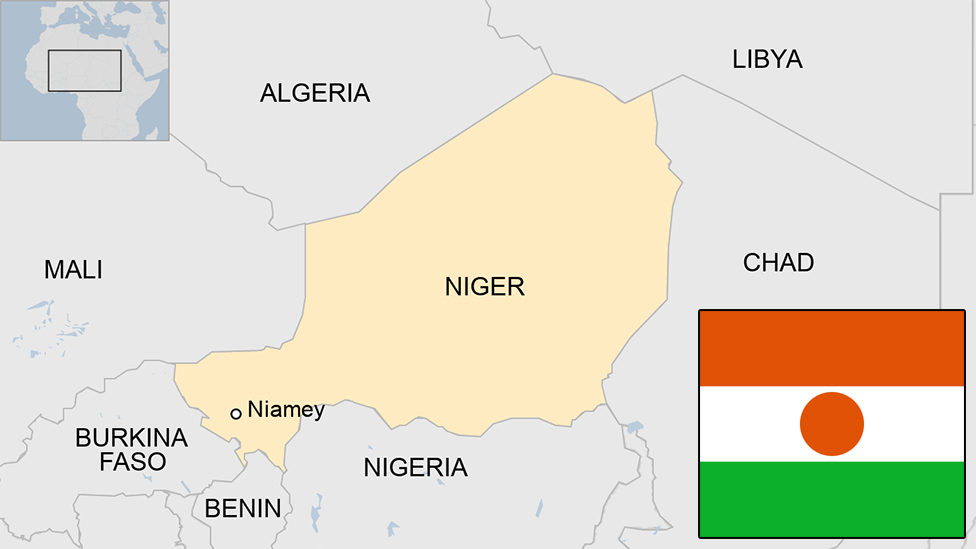Niger election: Can a prisoner beat the president?
- Published
Niger's elections explained in 60 seconds
Voters in Niger will be spoiled for choice in Sunday's elections, as 15 candidates, including a prisoner, are running for the presidency.
The West African state is seen as an important ally of Western powers in the fight against militant Islamists in the fragile Sahara region, but the country is far from stable.
President Mahamadou Issoufou is standing for a second term in the impoverished, uranium-producing West African nation, but the election is already marred by accusations of repression and disqualification of voters.

Why is this election important?
Niger's recent history has been one of political instability, with three coups since 1993, and a suspected coup attempt in December.
The country's southern border with Nigeria is prone to attacks by militant Islamist group Boko Haram, whose terror campaign has been felt across the Lake Chad region.
Al-Qaeda's North Africa branch, al-Qaeda in the Land of the Islamic Maghreb (AQIM), also remains a regional threat.
President Issoufou terms as "treason" any opposition to his counter-terrorism policy, while critics accuse him of "authoritarian excesses".

Who is likely to win?
President Issoufou, the candidate of the ruling Nigerien Party for Democracy and Socialism (PNDS) party, is favourite to win after a coalition of 30 parties, civic groups and trade unions failed to nominate a consensus candidate.
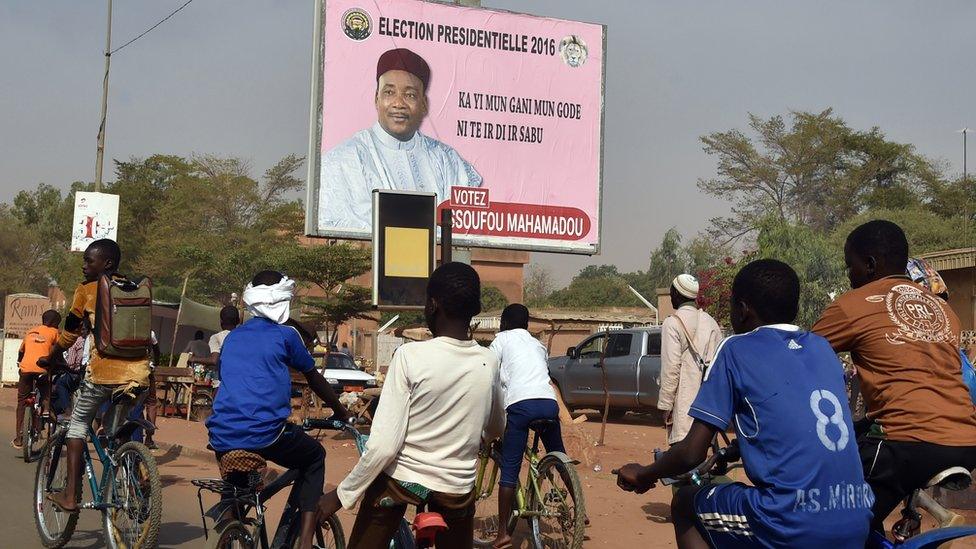
The incumbent president looms large over the election
His chances may come under serious threat if he does not win in the first round, and is forced to face a united opposition in the second.
Well-known figures among the crowded field of 15 presidential candidates include former Prime Ministers Hama Amadou, Seyni Oumarou, Amadou Boubacar Cisse and former President Mahamane Ousmane.

Will the election be fair?
Opposition leaders have refused to sign a code of conduct in protest at what they term arbitrary detention and extrajudicial arrests "under the pretext of counter-terrorism".
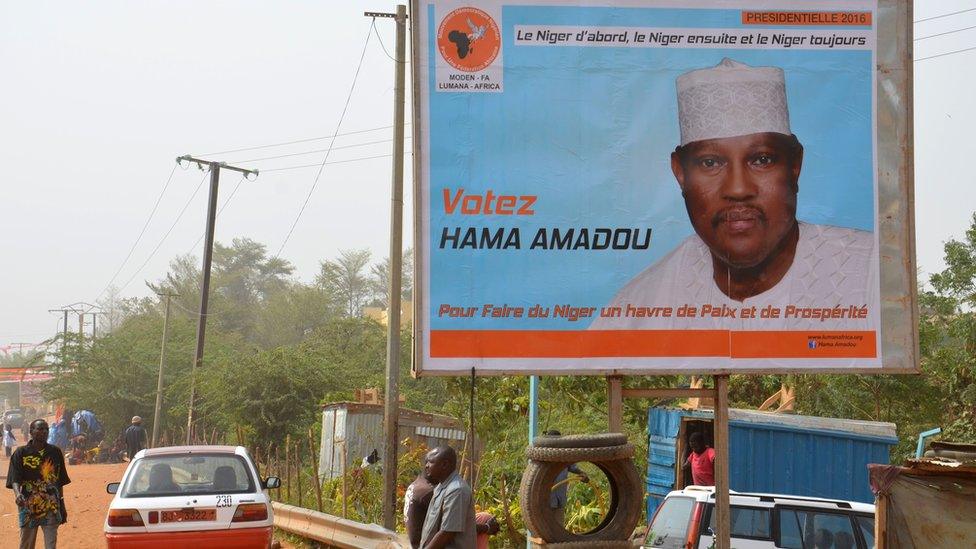
Presidential candidate Hama Amadou has been in prison since November 2015
Mr Issoufou's main opposition rival, Hama Amadou, is currently behind bars accused of trafficking babies from neighbouring Nigeria, a charge he strongly denies.
His Niger Democratic Movement (Moden) party considers him "a political prisoner and hostage" of the regime, and has kept him as its candidate.
Additionally, Ibrahim Hamidou of the opposition MNSD party was arrested for doubting December's alleged coup, but was released in January against the wishes of state prosecutors.

Why have so many voters been disqualified?
Up to 1.5 million people have been disqualified from voting after the failure to agree on a registration system.
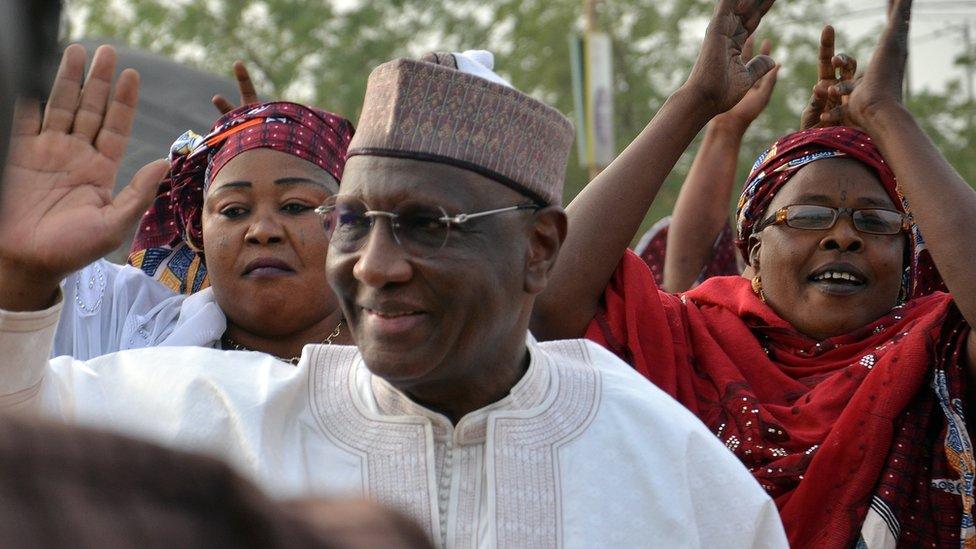
Presidential candidate Amadou Boubacar Cisse is part of a group called Coalition for a Change in Power 2016
Many Nigeriens do not hold identification documents, and political leaders were unable to agree on a scheme where witnesses could vouch for individuals.
However, it is unknown if this move - in line with Niger's election laws - will favour any one political party.

Will the election pass peacefully?
The election comes after the alleged coup attempt in December, and there have been cases of violence involving opposition and security forces.
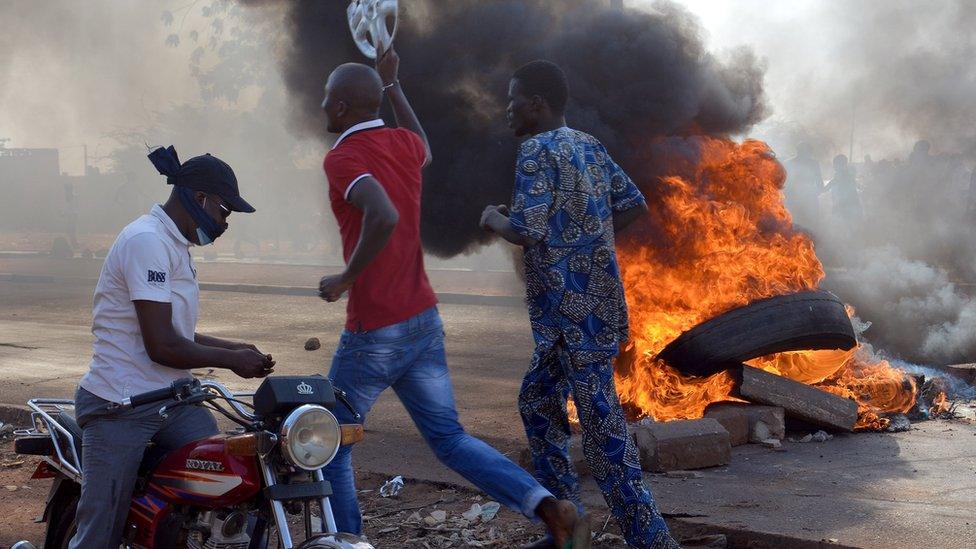
There were protests in Niamey after the arrest of Hama Amadou on charges of baby trafficking
But recent sources of tension appear to have been resolved, raising optimism that the elections will be peaceful.
However, accusations of arbitrary arrests and the continued Boko Haram threat make the situation unpredictable.
Westerners also worry about possible attacks by AQIM.

What are international hopes?
Both the US and France have military presences in Niger, and would look for a winner that guarantees regional stability.
With corruption, food shortages and porous borders remaining a problem, the eventual winner will have much work to do, even with foreign aid.

Country profile
A vast, arid state on the edge of the Sahara desert, Niger is rated by the UN as one of the world's least-developed nations.
BBC Monitoring reports and analyses news from TV, radio, web and print media around the world. You can follow BBC Monitoring on Twitter, external and Facebook, external.
- Published4 August 2023
